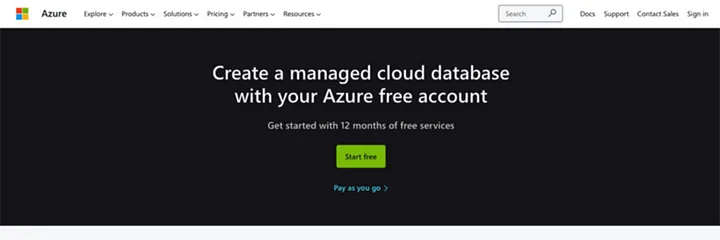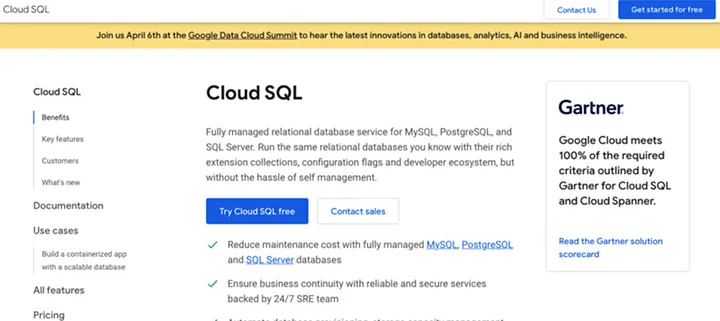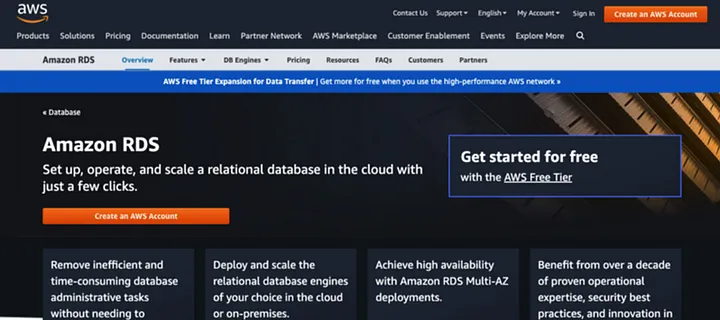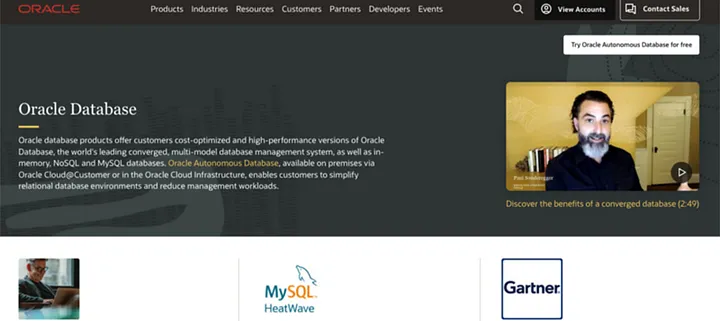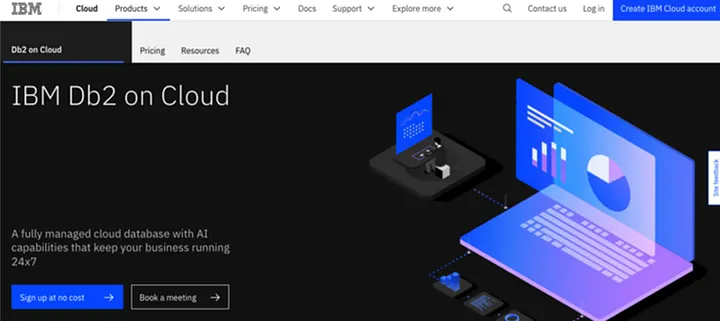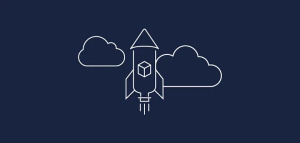Pros:
-Extensive database services
-Artificial Intelligence capabilities
-Automated security upgrades
The IBM Db2 on Cloud solution comes as just part of the service provider supergiant IBM’s end-to-end cloud computing platform.
As a plus, it is a totally controllable SQL database operating within the cloud. It is fast and simple to configure and offers responsive upscaling, therefore you need only charge for the assets you use. In addition, it provides embedded intelligence functionality and automated security hotfixes with rolling upgrades. It allows you to extract datasets almost effortlessly as required. Db2 on Cloud is likewise configurable with a frequent VPN. Aa s service, IBM Db2 on Cloud is accessible via the IBM Hybrid Data Management Platform, across which optional license database utilities are available, includingDb2 Event Store, Db2 Warehouse, and Db2 Big SQL. Overall, it’s again a powerful offering of technology products designed to meet the demands of businesses for more efficient data administration over hybrid clouds.
Additional Cloud-based Database Services Worth Reviewing
In the past few years, a variety of cloud platforms have emerged, being offered by a wide variety of vendors. Since database-based software continues to be the standard, it is critical when choosing a cloud platform to make sure that it can maintain database types and dimensions, as well as correctly integrate seamlessly with other IT infrastructure, not the least of which is keeping track of security and bugs. For example, according to the 2024 Stack Overflow Developer Survey, which gathered responses from over 90,000 developers worldwide, PostgreSQL and MySQL are among the most commonly used databases. Of course, we should understand that this list is only partially characteristic of the popularity rating. Additionally, we paid attention to the list published by DB-Engines.com, which is meaningful because besides popularity also covers the number of positions that exist on the market nowadays involving a SQL dialect or database comprehension. So below we take a quick overview of a few other cloud database solutions that are also a worthwhile option to check out:
MySQL database has been proven and trusted and is in great request due to the fact that web developers seek consistency, robustness, and reliability. It is written in C++ and C. The latest version of the database of MySQL is 8.0.
MySQL has rapidly won favor among the community and the industry thanks to its enterprise capabilities, its agile licensing (GPL), and its updated commercial releases.
PostgreSQL proves hard to surpass for users requiring enterprise-grade database administration. Thanks to its ease of use learning curve plus over-the-top support, it brings a vast array of advanced functionality to the table in one package. Originally titled POSTGRES, PostgreSQL ran at the University of California, Berkeley.
Because of its extensive background and evolving power, PostgreSQL stands as among the foremost cutting-edge open source databases.
MongoDB Atlas offers an automated and cloud-based solution to dramatically simplify database control in the cloud, so you can concentrate on building your applications. In addition, it includes distributed fault resiliency together with backup facilities to guarantee business uptime and provides worldwide support for 60+ cloud areas. Scalability by demand, optimization of assets, along with completely automated framework provisioning meaning MongoDB may be especially appealing to innovation-driven businesses.
Couchbase differs a bit as well in that it enables the creation of its custom databases under N1QL, thereby providing the ability to store much higher complexity data than MySQL usually does. It implies the ability to create databases within the cloud that are multi-tiered and perform even better with JSON. It also features integrated analysis, seamless enterprise-level replication, and protection. Thus, in case you need a far more competitive database platform offering the versatility of NoSQL, perhaps you should check out Couchbase.
Wrap Up
Hopefully, the provided facts and information can help you choose a database more thoughtfully. If you are having difficulties or wonder which database is the most appropriate for you, please contact the inVerita team for assistance!




